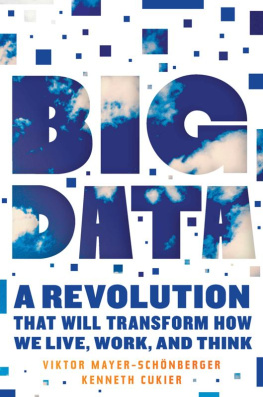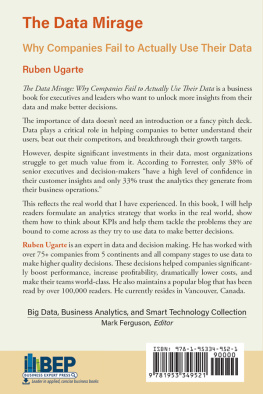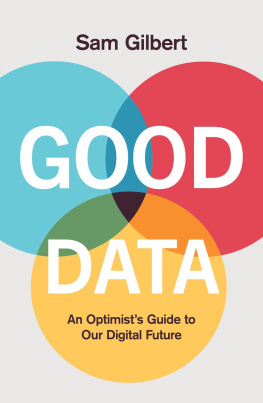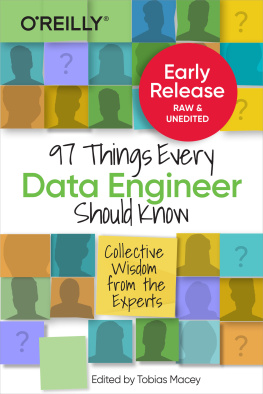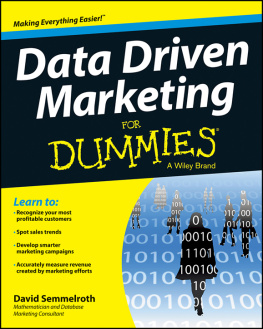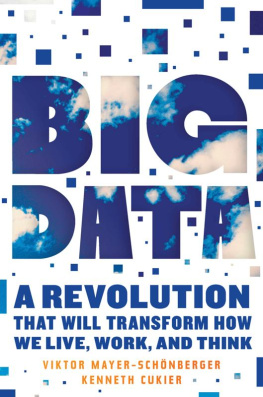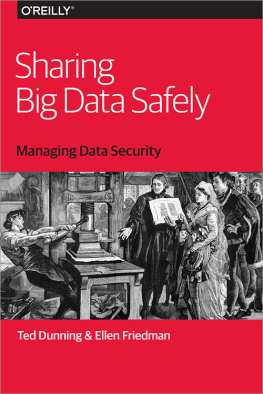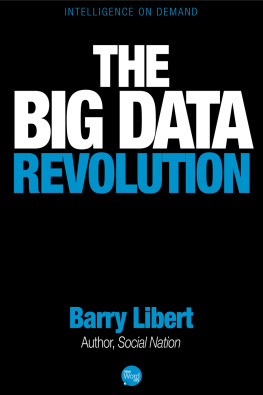Hachette Book Group supports the right to free expression and the value of copyright. The purpose of copyright is to encourage writers and artists to produce the creative works that enrich our culture.
The scanning, uploading, and distribution of this book without permission is a theft of the authors intellectual property. If you would like permission to use material from the book (other than for review purposes), please contact permissions@hbgusa.com. Thank you for your support of the authors rights.
Published by Basic Books, an imprint of Perseus Books, LLC, a subsidiary of Hachette Book Group, Inc. The Basic Books name and logo is a trademark of the Hachette Book Group.
The publisher is not responsible for websites (or their content) that are not owned by the publisher.
I T SHOULD HAVE BEEN A VICTORY CELEBRATION. B Y THE time eBays new CEO, Devin Wenig, climbed the stage for turned into what looked like a perpetual money-maker. EBay had taken an old but highly successful idea, the market, and put it online.
Because eBays market was no longer a physical place, it never closed. And thanks to the Internets global reach, pretty much everyone connected to it could buy and sell on it. Through eBays unique rating system, it created a way to trust market participants without knowing them. Together that made the new virtual marketplace tremendously attractive, resulting in what economists call a thick market, a market with lots of buyers and sellers. Thick markets are good markets, because they increase the likelihood of finding what one is looking for. EBay also took a feature of traditional markets and improved on it: it replaced fixed prices with an auction mechanism, a far better way to achieve optimal price, as economics students learn in their first semester.
A marketplace with global reach thats always open and makes transacting simple, easy, and efficientthats the recipe for eBays meteoric rise. It not only ushered in the Internet economy but also seemed to reconfirm the preeminent role markets play in our economy.
But to journalists attending an indication of a much larger, structural shift.
Just months before eBays twentieth anniversary, Yahoo, another early Internet pioneer, was suffering its own market woes. Yahoo owned a substantial chunk of Chinese online marketplace Alibaba, and based on Alibabas share price, its holding of Alibabas shares was more valuable than Yahoos total market capitalization. So wisdom of the market; so they ought to be right. Something was wrongterribly wrong.
EBays surprising troubles and Yahoos crazy share price arent random events. They signify a fundamental weakness of existing marketplaces, a weakness, as well explain, that is tied to price. Because the flaw is linked to price, not all marketplaces are suffering. In fact, some markets, less reliant on price, are outright thriving.
Just about the time eBay and Yahoo got into trouble, a more recent Internet start-up, BlaBlaCar, was doing amazingly well. Founded in Europe by a young Frenchman bitten by the Internet bug during graduate studies at Stanford, BlaBlaCar, much like eBay, operates an online marketplace, albeit a highly specialized one. It is in the business of helping people share car rides by matching those offering a ride with those looking for one. And it does so very well, matching millions of riders every month and growing quickly. Whereas eBays original focus was on price-based auctions, BlaBlaCars marketplace offers participants rich data about each other, ranking details such as driver chattiness (hence its name), so users can easily search and identify the best matches for them, and downplaying the importance of price (ride-sharers can select price only within a limited range). BlaBlaCars ride-sharing market isnt alone in using rich data. From Internet travel site Kayak to online investment company SigFig, to digital labor platform Upwork, more and more markets that use data to help participants find better matches are gaining traction and attracting attention.
In this book, we connect the dots between the difficulties faced by traditional online markets; the error of the stock markets trusted pricing mechanism; and the rise of markets rich with data. We argue that a reboot of the market fueled by data will lead to a fundamental reconfiguration of our economy, one that will be arguably as momentous as the Industrial Revolution, reinventing capitalism as we know it.
The market is a tremendously successful social innovation. Its a mechanism to help us divvy up scarce resources efficiently. Thats a simple statementwith enormous impact. Markets have enabled us to feed, clothe, and house most of 8 billion humans, and to greatly improve their life expectancy as well as life quality. Market transactions have long been social interactions, making them superbly well aligned with human nature. Thats why markets seem so natural to most of us and are so deeply ingrained in societys fabric. They are the building blocks of our economy.
To do their magic, markets depend on the easy flow of data, and the ability of humans to translate this data into decisionsthats how we transact on markets, where decision-making is decentralized. This is what makes markets robust and resilient, but it requires that everyone has easy access to comprehensive information about whats available. Until recently, communicating such rich information in markets was difficult and costly. So we used a workaround and condensed all of this information into a single metric: price. And we conveyed that information with the help of money.
Price and money have proved to be an ingenious stopgap to mitigate a seemingly intractable challenge, and it workedto a degree. But as information is compressed, details and nuance get lost, leading to suboptimal transactions. If we dont fully know what is on offer or are misled by condensed information, we will choose badly. For millennia, we tolerated this inadequate solution, as no better alternative was available.
Thats changing. Soon, rich data will flow through markets comprehensively, swiftly, and at low cost. Well combine huge volumes of such data with machine learning and cutting-edge matching algorithms to create an adaptive system that can identify the best possible transaction partner on the market. It will be easy enough that well do this even for seemingly straightforward transactions.
Suppose, for instance, you are looking for a new frying pan. An adaptive system, residing perhaps on your smartphone, accesses your past shopping data to gather that you bought a pan for induction cooktops last time, and also that you left a so-so review of it. Parsing the review, the system understands that the pans coating really matters to you, and that you favor a ceramic one (it also notes your preferred material for the grip). Equipped with these preferences, it then looks at online markets for optimal matches, even factoring in the carbon footprint of the delivery (because it knows how worried you are about that). It negotiates automatically with sellers, and because you are ready to pay by direct transfer it is able to get a discount. With a single tap, your transaction is complete.
It sounds seamless and simplebecause it should be. Its far faster and less painful than having to do the search yourself, but it also takes into account more variations and evaluates more offers than you would do. Neither does the system tire easily (as we humans do when searching for something offline or online), nor is it distracted in its decision advice by price, derailed by cognitive bias, or lured by clever marketing. Of course, well still use money as a store of value, and price will still be valuable information; but no longer being focused on price broadens our perspective, yields better matches, a more efficient transaction, and, we believe, less trickery in the market.



